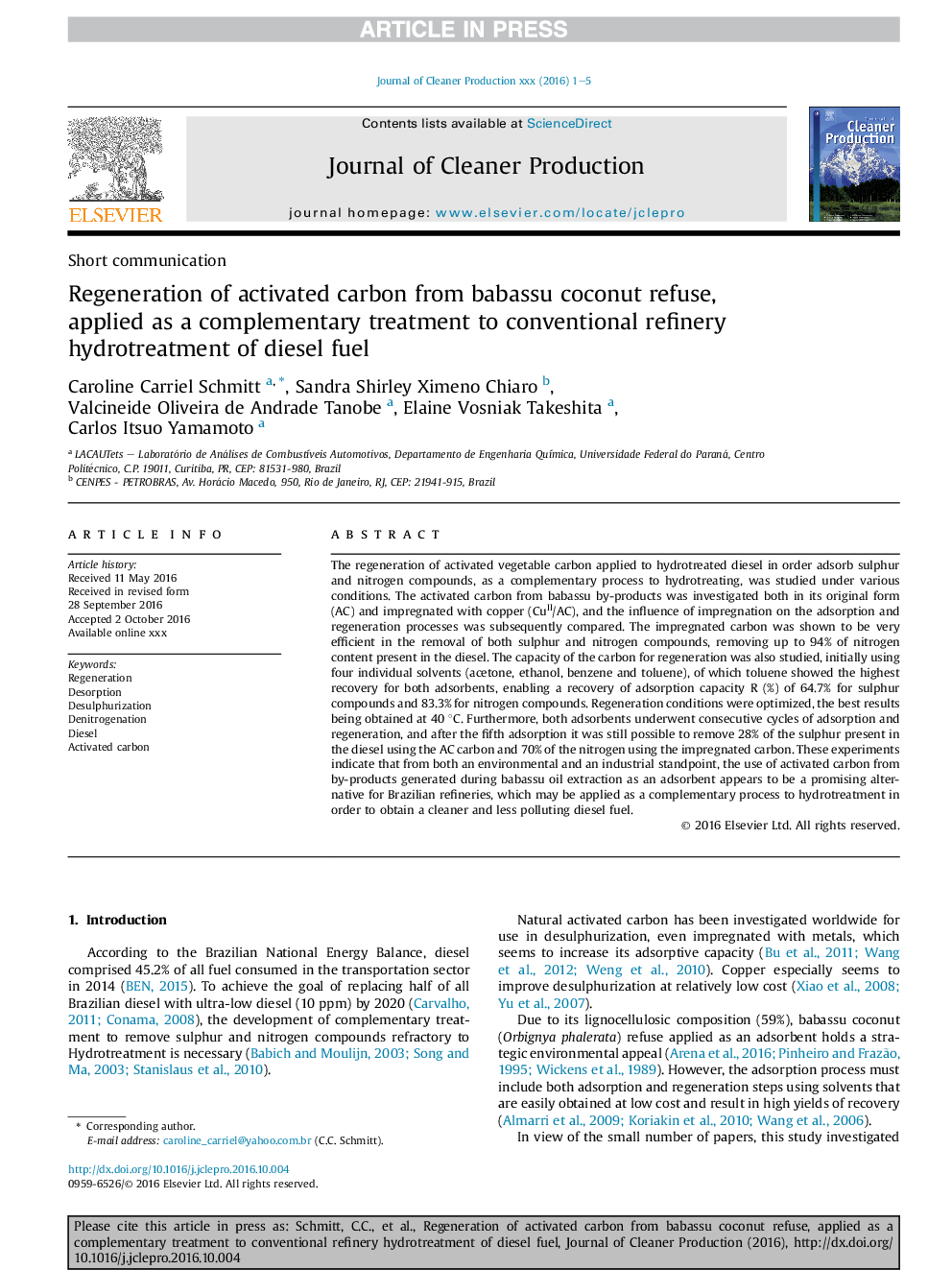| کد مقاله | کد نشریه | سال انتشار | مقاله انگلیسی | نسخه تمام متن |
|---|---|---|---|---|
| 5481409 | 1522112 | 2017 | 5 صفحه PDF | دانلود رایگان |
عنوان انگلیسی مقاله ISI
Regeneration of activated carbon from babassu coconut refuse, applied as a complementary treatment to conventional refinery hydrotreatment of diesel fuel
دانلود مقاله + سفارش ترجمه
دانلود مقاله ISI انگلیسی
رایگان برای ایرانیان
کلمات کلیدی
موضوعات مرتبط
مهندسی و علوم پایه
مهندسی انرژی
انرژی های تجدید پذیر، توسعه پایدار و محیط زیست
پیش نمایش صفحه اول مقاله

چکیده انگلیسی
The regeneration of activated vegetable carbon applied to hydrotreated diesel in order adsorb sulphur and nitrogen compounds, as a complementary process to hydrotreating, was studied under various conditions. The activated carbon from babassu by-products was investigated both in its original form (AC) and impregnated with copper (CuII/AC), and the influence of impregnation on the adsorption and regeneration processes was subsequently compared. The impregnated carbon was shown to be very efficient in the removal of both sulphur and nitrogen compounds, removing up to 94% of nitrogen content present in the diesel. The capacity of the carbon for regeneration was also studied, initially using four individual solvents (acetone, ethanol, benzene and toluene), of which toluene showed the highest recovery for both adsorbents, enabling a recovery of adsorption capacity R (%) of 64.7% for sulphur compounds and 83.3% for nitrogen compounds. Regeneration conditions were optimized, the best results being obtained at 40 °C. Furthermore, both adsorbents underwent consecutive cycles of adsorption and regeneration, and after the fifth adsorption it was still possible to remove 28% of the sulphur present in the diesel using the AC carbon and 70% of the nitrogen using the impregnated carbon. These experiments indicate that from both an environmental and an industrial standpoint, the use of activated carbon from by-products generated during babassu oil extraction as an adsorbent appears to be a promising alternative for Brazilian refineries, which may be applied as a complementary process to hydrotreatment in order to obtain a cleaner and less polluting diesel fuel.
ناشر
Database: Elsevier - ScienceDirect (ساینس دایرکت)
Journal: Journal of Cleaner Production - Volume 140, Part 3, 1 January 2017, Pages 1465-1469
Journal: Journal of Cleaner Production - Volume 140, Part 3, 1 January 2017, Pages 1465-1469
نویسندگان
Caroline Carriel Schmitt, Sandra Shirley Ximeno Chiaro, Valcineide Oliveira de Andrade Tanobe, Elaine Vosniak Takeshita, Carlos Itsuo Yamamoto,